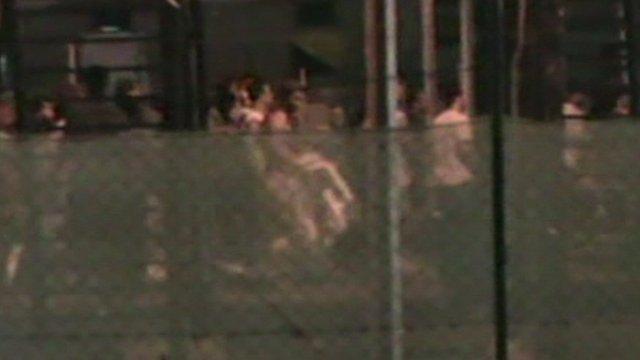Australia handed over 41 asylum seekers to Sri Lanka
- Published
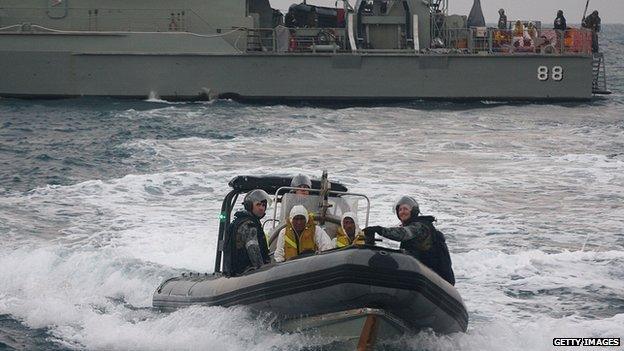
Australia says it is trying to deter asylum seekers from making dangerous sea voyages
Australia has confirmed it has returned 41 asylum seekers to the Sri Lankan authorities at sea.
The transfer took place on Sunday.
Rights groups had raised concerns that some 200 Sri Lankans may have been handed over, including Tamils who say they face persecution at home.
The government has not commented on other possible cases, but says everyone was subject to "enhanced screening" to ensure compliance with Australia's international obligations.
This is the first time the government has confirmed it has intercepted people at sea, screened them and returned them to their country of origin.
'Profound concern'
Immigration Minister Scott Morrison acknowledged on Monday , externalthat a boat-load of 41 people had been handed back to Sri Lanka, while not commenting on the fate of a second boat reportedly carrying about 150 people.
He said they were transferred at sea just outside the Sri Lankan port of Batticaloa on Sunday. "All persons intercepted and returned were subjected to an enhanced screening process," he said.
The government says only four of those returned on Sunday were Tamils.
Mr Morrison added that only one person may have had a case for asylum but he opted to return voluntarily with the rest of the passengers.
Sri Lankan officials said the group would be taken to the port of Galle and handed over to police to be investigated.
Last week the UN refugee agency UNHCR had expressed, external "profound concern" about the reported situation.
"Requests for international protection should be considered within the territory of the intercepting state, consistent with fundamental refugee protection principles," it said.
"International law prescribes that no individual can be returned involuntarily to a country in which he or she has a well-founded fear of persecution."
'Deep concerns'
Richard Marles, Australia's shadow minister for immigration, questioned the operation.
"Australia's international obligations are reliant upon a credible processing system and we have deep concerns about how that could have been performed by video link at sea in a way which gave an individual assessment, when all the time the boat was steaming towards Sri Lanka," he said.

.jpg)
Conditions in Australia's processing facility in PNG have been severely criticised
Australia and asylum
Asylum-seekers - mainly from Afghanistan, Sri Lanka, Iraq and Iran - travel to Australia's Christmas Island on rickety boats from Indonesia
The number of boats rose sharply in 2012 and the beginning of 2013, and scores of people have died making the journey
The previous government reintroduced offshore processing in Nauru and Papua New Guinea. Any asylum seekers found to be refugees will be resettled in PNG, not Australia
The new government has toughened policy further, putting the military in charge of asylum operations and towing boats back to Indonesia
Rights groups and the UN have voiced serious concerns about the policies. Australia says no new asylum boats have arrived for 200 days

Sri Lanka has been under heavy international pressure over alleged human rights violations during the final phase of the war against Tamil separatists which ended in 2009.
Rights groups say Tamils still face violence at the hands of the military.
The fate of those on a second boat reportedly detained remains unclear. Greens Senator Sarah Hanson-Young urged the government to "start being up front with what's happening to them and what their fate will be".
The Australian government has been criticised for imposing what campaigners call a culture of secrecy around asylum, by refusing to comment on operations.
Australia has been taking a tough approach to asylum seekers who try to reach the country by perilous sea journeys.
Under current policy, asylum seekers who arrive by boat are sent to detention camps in Papua New Guinea (PNG) or Nauru. If found to be refugees, they will be resettled there, not in Australia.
Australia says its asylum policy - which is also widely believed to involve towing boats back to Indonesian waters - is aimed at saving lives.
It is also facing tough questions over its offshore processing policy. The UN and rights groups have condemned conditions in its camps in PNG and Nauru.
Investigations are continuing into the death of one asylum seeker in violence at the PNG camp. He is believed to have been beaten to death by a 10-person mob comprising camp guards and PNG locals.
- Published26 May 2014
.jpg)
- Published9 May 2014
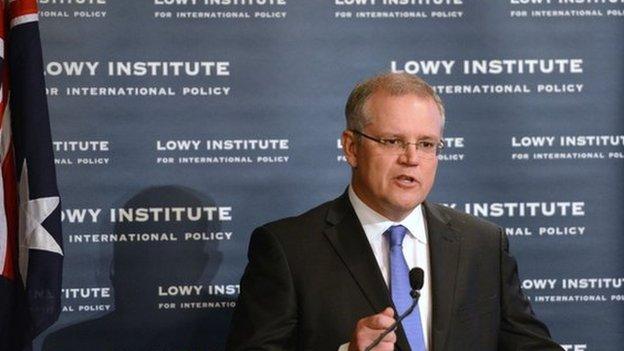
- Published29 July 2013
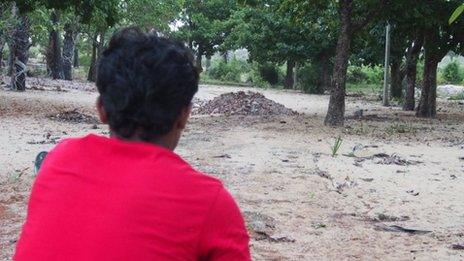
- Published3 May 2014
.jpg)
- Published17 April 2014
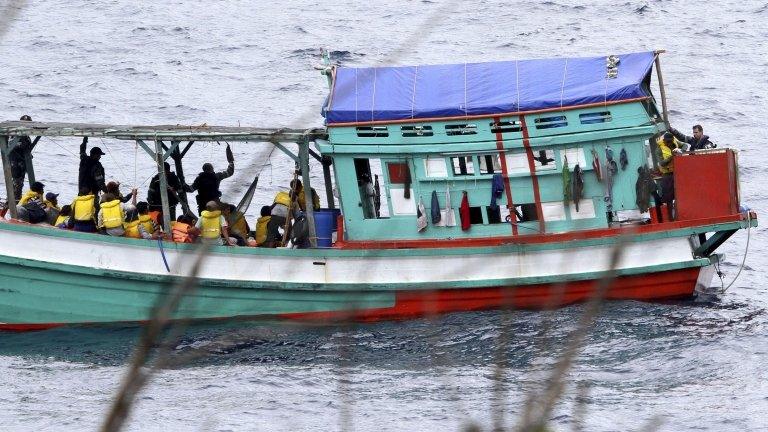
- Published18 February 2014
